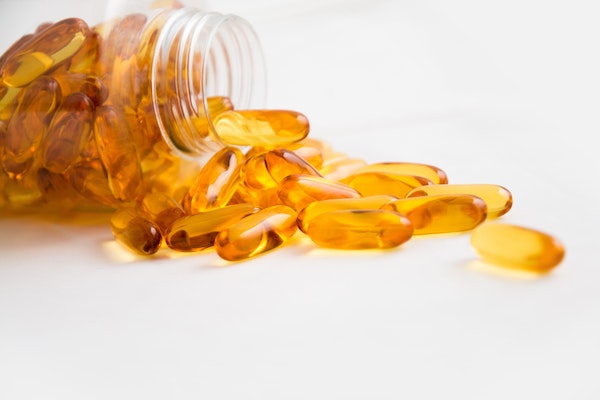
Krill Oil Benefits - Is Krill Oil better than Fish Oil?
What is Krill Oil?
Krill means “whale food” in Norwegian. In general, krill are shrimp-like crustaceans that whales feed on in large groups. Their body contains a high amount of omega-3 fatty acids which upon consumption, provides a lot of health benefits for us.
Where fish oil can be found in fishes, krill oils are extracted from little crustaceans. They contain the same type of omega-3 fatty acid and provide just as much nutrients as a fish oil supplement would.
Fish Oil and Omega-3, What Is the Difference?
Fish oil contains different types of omega-3 fatty acids such as eicosapentaenoic acid (EPA) and docosahexaenoic acid (DHA). They can generally be found in fish tissue and their fat. However, fish does not produce these fatty acids themselves, rather, they acquire them by eating other small fish and microalgae.
Thus the major difference between those two is that omega-3 is a type of fatty acid found in fish oil. Whereas fish oil is just a term used to generalize the multiple variations of fatty acid found in them.
Krill oil vs fish oil
Fish oil is extracted from the tissues of a fish. It holds many nutritional benefits such as Vitamin A and D. It is important to consume plenty of fish oil and incorporate it into your daily diet.
Although fish oil holds a higher concentration of DHA and EPA compared to krill oil, krill oil’s DHA and EPA are more digestible and we may absorb and use the fatty acids in krill oil better than fish oil.
What are the Benefits of Krill Oil?
The fatty acids in krill oil are thought to be beneficial for treating swelling and lowering cholesterol intake. Krill oil also helps make blood platelets less gooey and sticky. When blood platelets are less sticky, they are less likely to form blood clots that could clog up your blood circulation.
As krill oil has high amounts of antioxidants in their omega-3 fatty acid, consuming them can lower the risks of contracting heart diseases. Heart attacks and strokes are becoming a common cause of death. It is therefore important to keep your heart healthy with sufficient consumption of krill oil.
Krill oil can also reduce the risks of having mental disorders such as schizophrenia and bipolar disorder. Our brain needs a lot of energy to work and a healthy level of omega-3 helps our brains to function properly. If we consume too little omega-3 fatty acid, our mind will have a lack of energy which may lead to depression and mood swings becoming a frequent occurrence.
The omega-3 fatty acid in krill oil can also treat joint problems such as osteoporosis and arthritis. It improves your bone health by boosting the calcium’s potency in your body, thus giving a lasting effect to your joints for maintaining its durability.

Krill Oil Omega 3
Consumption of Krill Oil Omega 3 comes in the form of supplement products as people rarely eat krill meat. Most of these supplements can be found at Nature’s Farm as they import the most high-quality ingredients to produce their omega-3 supplements.
Are There Any Side Effects?
People that are allergic to seafood should avoid taking krill oil supplements. As krill oil has components of crustacean’s remains attached to it, it may cause an allergic reaction upon consumption.
A person with hypoglycemia diabetes (blood sugar level is lower than normal) should avoid taking any krill oil as well. This is because krill oil can lower the blood sugar level in their body.
However, a person with a high blood sugar level (hyperglycemia diabetes) can take krill oil supplements as this effect would aid them in lowering their sugar level back to normal. 
If your facial skin has pimples and is prone to being oily, taking krill oil supplements might make it even oilier. Thus, do keep your face clean as much as possible when you begin taking these supplements.
A patient that went through surgery should not take any krill oil supplements either. As krill oil can slow down blood clotting, this becomes a risk as there are some concerns in losing blood during a surgical procedure. It may also cause internal bleeding after surgery.
Hence if you are taking krill oil supplements for your diet, it’s best to take a break 2 weeks before your scheduled surgery and continue consuming the supplements after a month of recovery.
How Do I Choose a Good Krill Oil Supplement?
Although krill oil has become one of the most popular supplements today, it is important to know which supplements are genuine.
There are some companies willing to mislabel their supplements just to turn in a quick profit. Thus, most of their omega-3 supplements may not even contain the actual fatty acid that was described on their label.
Here at Nature’s Farm, we encourage you to do your research and consult a physician about your health before adding a new supplement to your diet. As krill oil does provide many health benefits when it’s consumed wisely it may become a concern when they are misused by the misinformed.



Leave a comment